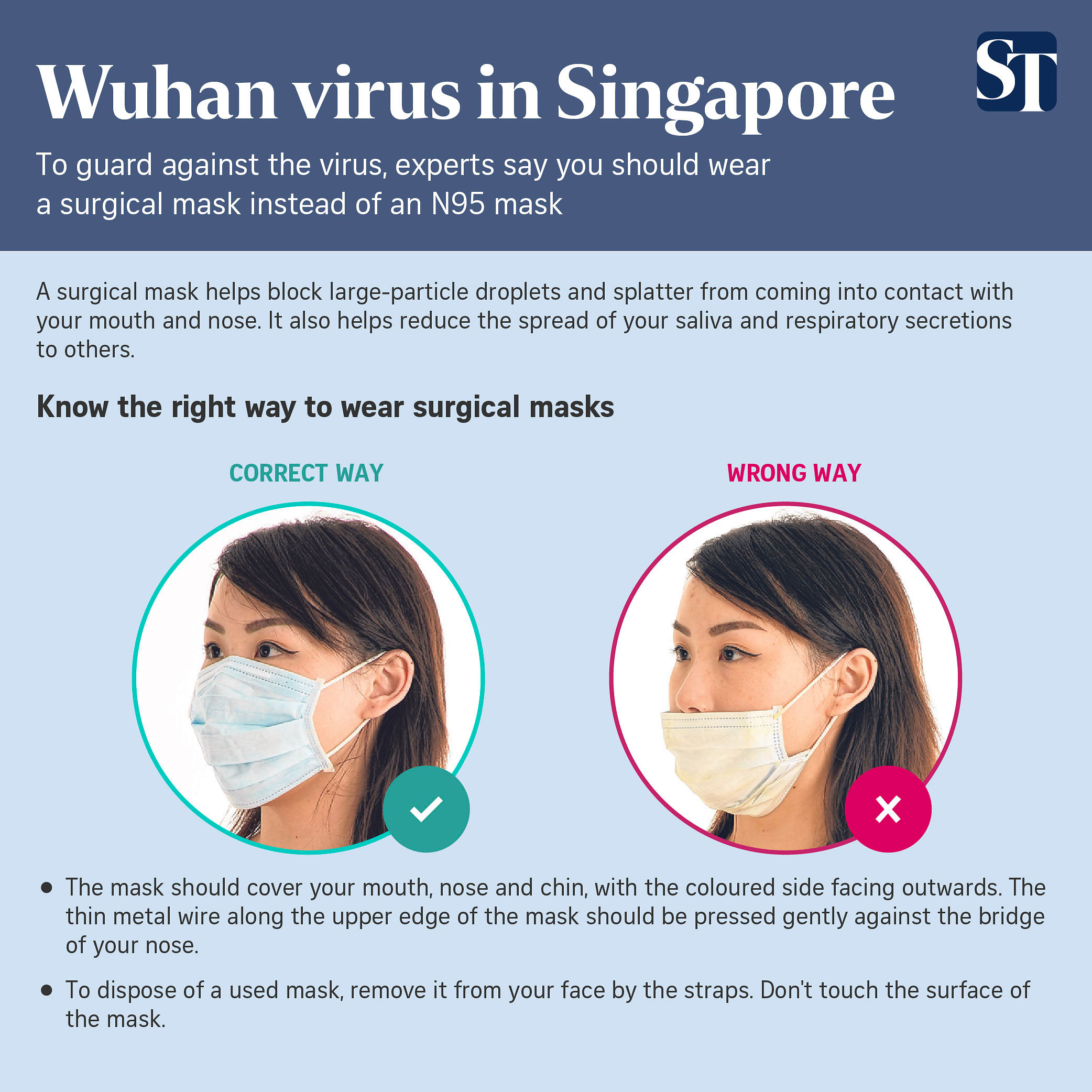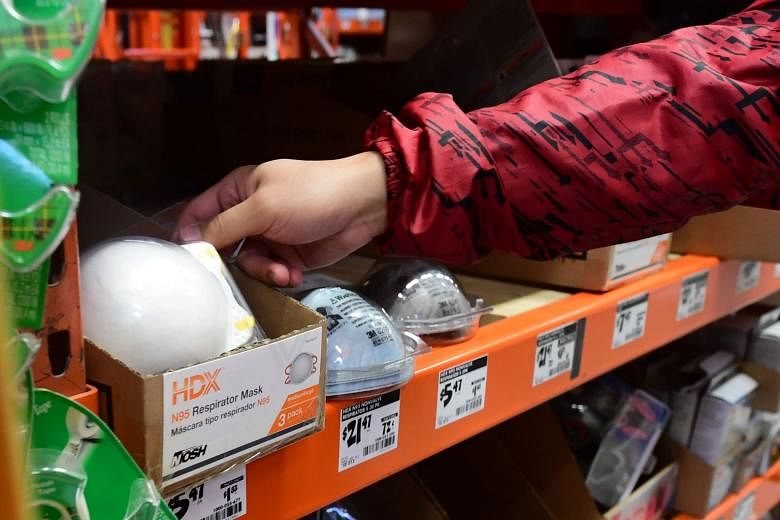NEW YORK (NYTIMES) - Even though there are only five cases of Wuhan coronavirus in the United States, the mask hoarding has begun.
Some pharmacies report being entirely sold out of masks. Some popular sellers on Amazon say deliveries will be delayed for weeks.
Although masks actually do little to protect healthy people, the prospect of shortages created by panic buying worries some public health experts.
Masks are thought to slow the spread of disease when they are worn by sick people in crowded places like emergency rooms, offices, subways and buses. By containing coughs and sneezes, masks stop virus-laden droplets from being spewed into the air and onto nearby surfaces.
But hoarding by those who are well means that hospitals, clinics and doctors' offices could run short. Doctors and nurses treating patients for respiratory infections should wear masks and replace them often - as soon as they become soggy, the Centres for Disease Control and Prevention (CDC) says.
The CDC is now reaching out to manufacturers to head off the possibility of shortages, especially in hospitals, an agency official said.
"We see panic ordering and buying that doesn't reflect the actual need," said Dr Anita Patel, the senior adviser for pandemic medical care in the agency's influenza coordination unit. "We're talking to manufacturers. They understand the situation, and I'm confident that they are being responsible. The healthcare industry is their biggest customer."
On Tuesday (Jan 28), Secretary of Health and Human Services Alex Azar said it was "unnecessary" for Americans to buy masks now.
"In the US, the risk to any individual American is extremely low," he said.
Some experts want the government to step in and educate the public about the dangers of hoarding.
"I worked through the 2009 H1N1 flu epidemic at Yale Hospital, and we ran out of N95 masks - and being in a high-risk situation without enough masks is not a good feeling," said Dr Peter Rabinowitz, co-director of the University of Washington MetaCentre for Pandemic Preparedness and Global Health Security in Seattle.
"There's no rational reason why everyone needs to run out and get masks," he added. "Public health officials should be talking about this."
During the West African Ebola outbreak in 2014, when a few cases turned up in the US, some hospitals were unable to get waterproof Tyvek suits "because there was a run on them," said Mr Amesh Adalja, a scholar at the Centre for Health Security at the Johns Hopkins Bloomberg School of Public Health in Baltimore.
Panicked people engage in irrational impulse buying, he said. "People like to buy duct tape during emergencies - it's psychologically soothing."
On Tuesday, major pharmacy chains said they were seeing spot shortages but were not yet restricting sales. The CVS chain had stores running out of masks and was resupplying them "as quickly as possible", said Ms Stephanie Cunha, a company spokesman.
Walgreens and Duane Reade pharmacies saw greater demand for face masks and hand sanitiser in many stores, said Ms Alexandra Brown, a spokesman for the Walgreens Boots Alliance, which owns both chains.
The company is moving supplies "to meet the needs of our customers", she added.
Masks are not very protective when worn by healthy people, experts say. People often pull them aside for a variety of reasons.
Vapour from breath can leave masks soggy, for example. Users may want to talk on their cellphones or put their fingers under their masks to scratch their noses. Frequent hand-washing is considered more protective.
Yet there is strong evidence that masks protect health workers.
Trials in Canadian hospitals during the 2003 severe acute respiratory syndrome (Sars) epidemic and during flu season showed that nurses who wore a mask were less likely to get flu.
N95 masks - which are thicker, fit tighter to the face and are designed to filter out 95 per cent of all particles - were particularly protective for those who did dangerous procedures like intubating Sars patients.
There is less data proving that masks keep patients from spreading germs. But this common sense notion has led many hospitals to adopt rules saying that any emergency room patient with flu symptoms is immediately handed a mask and asked to put it on.












